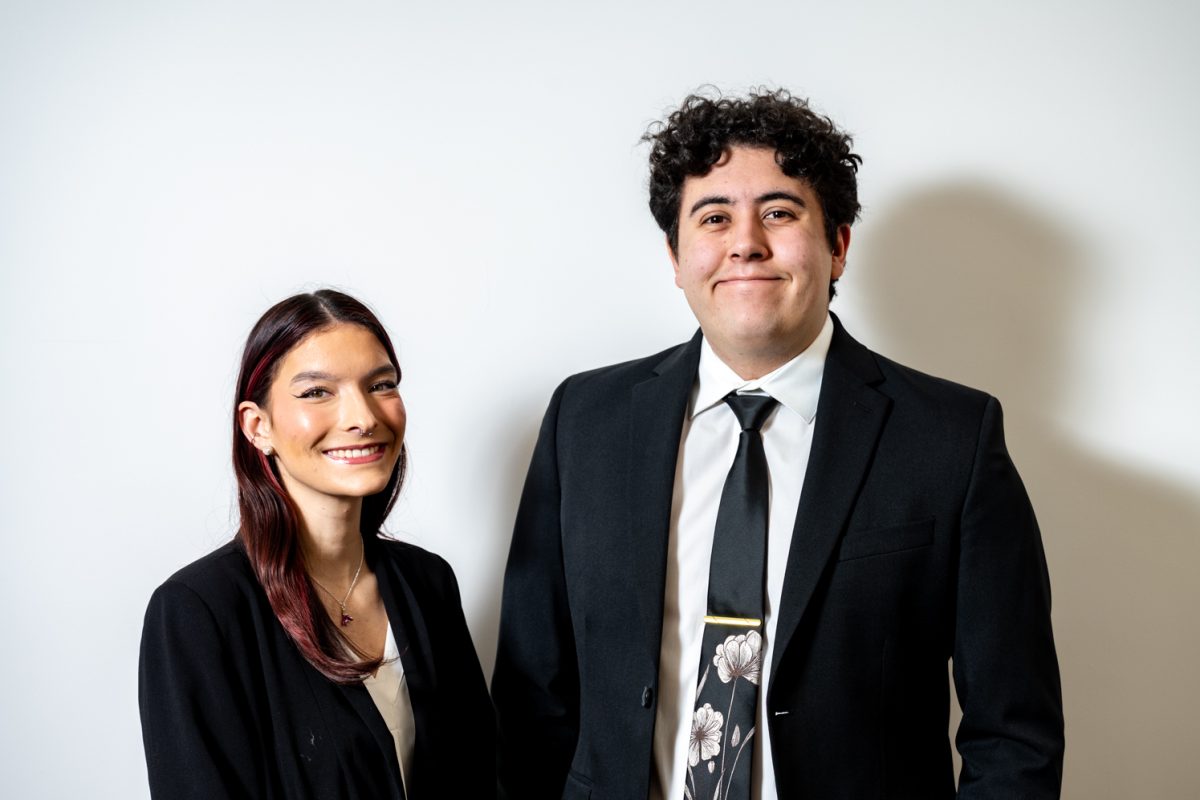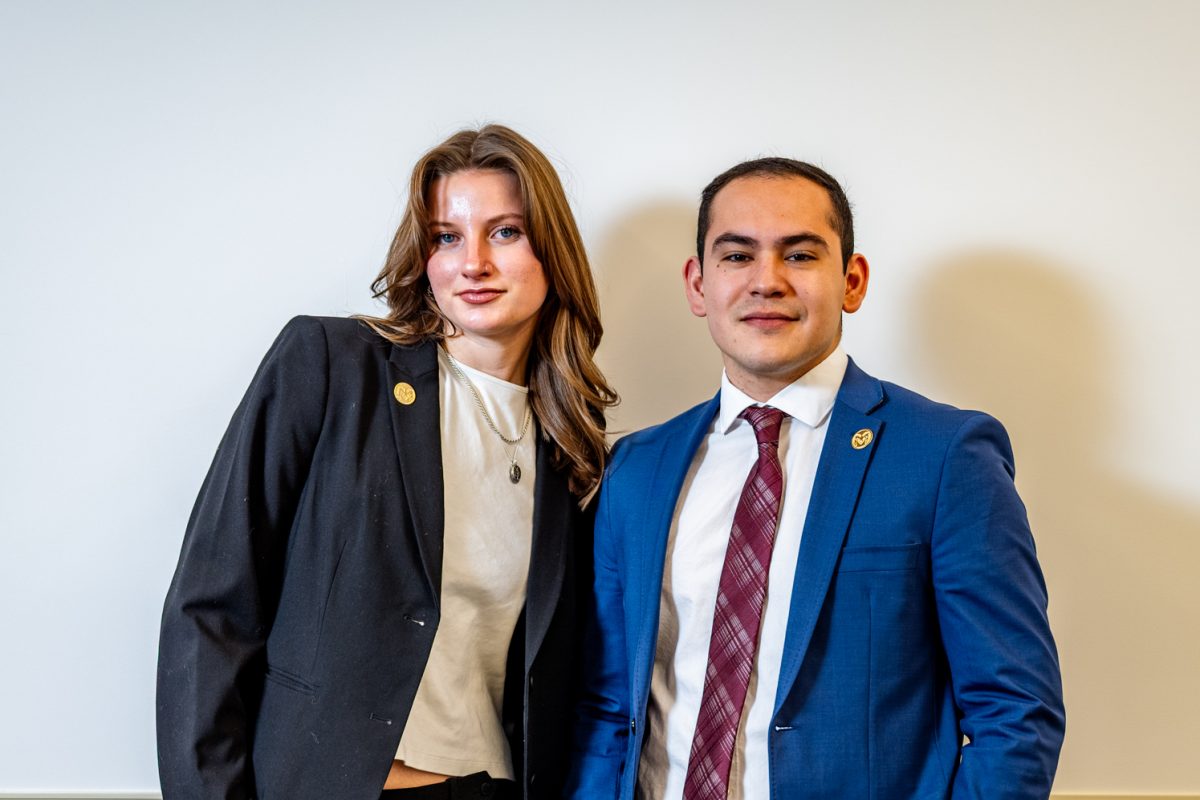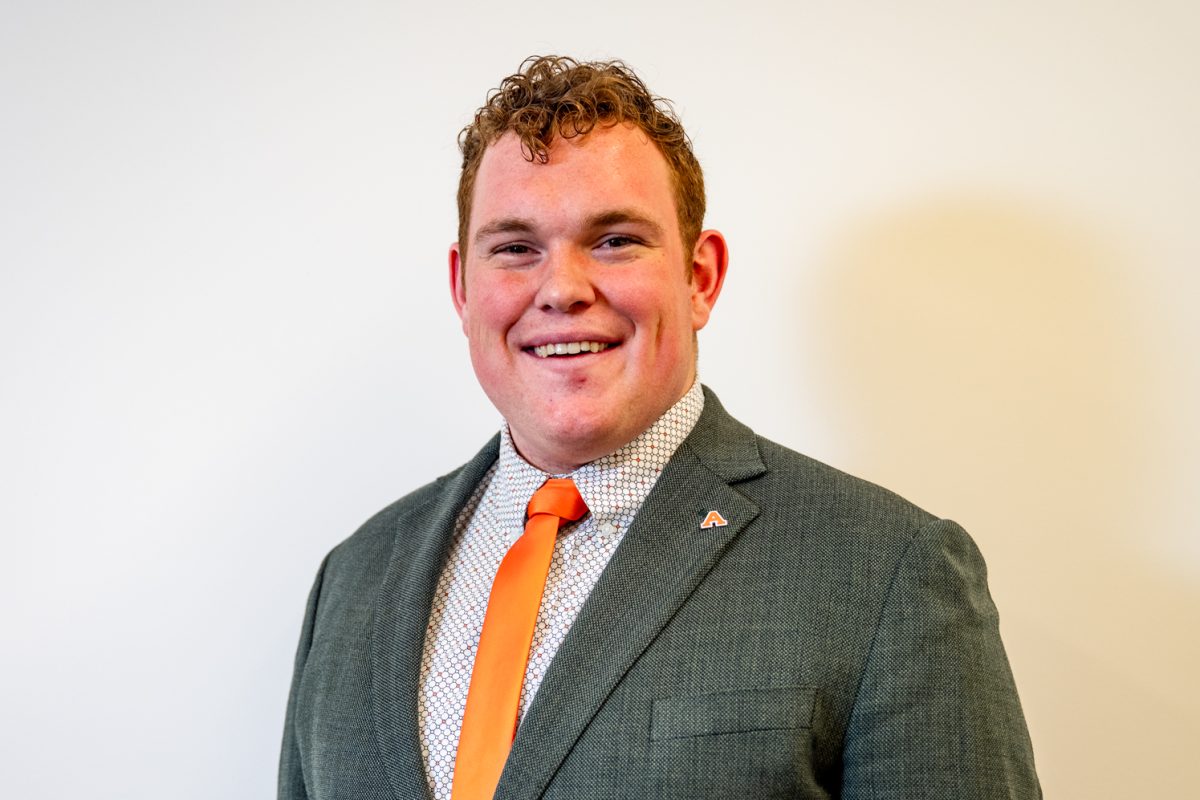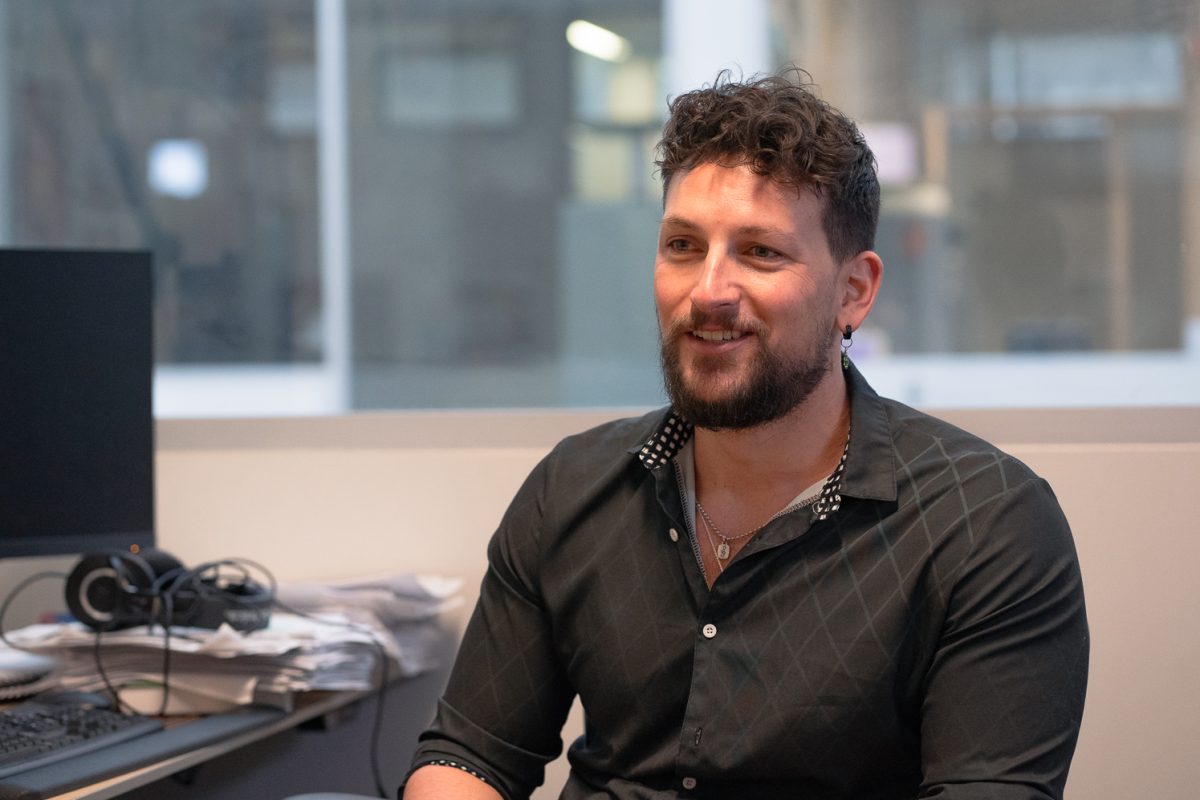On Oct. 14, students and faculty at Colorado State University attended CSU Ignites AI: Shaping Tomorrow Together, an all-day symposium on artificial intelligence. The symposium partnered with Microsoft, Accenture and the City of Fort Collins to explore the future of artificial intelligence and its responsible use in education.
Prior to opening remarks, Brandon Bernier, the vice president for information technology, shared his hopes for what students will take away from the event.
“Today was about bringing together students, faculty and staff to be able to see the possibilities for AI; to be able to collaborate and come up with new ideas; (and) to be able to share some of their hopes and aspirations while also talking about … privacy or some of the concerns,” Bernier said. “Today is all about dialogue and figuring out how CSU will be able to advance AI (and) be able to leverage it for student success.”
CSU President Amy Parsons kicked off the symposium by positioning CSU as an emerging leader in the AI field.
“It’s true that the AI landscape is moving so fast that it can cause a lot of angst and anxiety,” Parsons said. “At CSU, we don’t see that uncertainty as a reason to hesitate; we see it as a reason to lead. Our job is to lead in understanding our needs, understanding those use cases, and to move swiftly to putting them to work.”

A key part of the event highlighted CSU’s partnership with Microsoft, which will assist in the integration of AI services across CSU platforms. Hether Danforth, the vice president of U.S. education at Microsoft, encouraged attendees to embrace AI as a catalyst for human potential.
“It’s not about replacing people; it’s actually about amplifying their creativity,” Danforth said. “I think it unlocks new ideas, whether you’re a faculty member designing curriculum, a staff member looking for a new, better way to drive a process or a student exploring new ideas.”
AI is becoming more embedded in everyday life, especially for students who are thinking about their future. Luke Leahy, a senior studying business who co-chairs the University Technology Fee Advisory Board, encouraged students to embrace the use of AI.
“As we move into the future and into our future jobs, I think it’s key that we at least start touching on it,” Leahy said. “I, as a freshman, was very against AI. I just (wanted) to learn myself and have that information myself. Realistically, as we move into the real world and our future careers, AI is going to become a bigger and bigger part of it.”
Following opening speakers, attendees were presented with CSU’s latest advancement in AI technology: the CSU AI Hub. Powered by Microsoft Azure and nebulaONE, the hub includes the new CSUGPT, personal AI agents and the upcoming RamGPT tool.
CSUGPT launched the same day as the symposium and gives every student, faculty member and staff member access to a CSU-specific generative AI. It can answer questions about course requirements, financial aid, Rec Center classes and more. It functions like ChatGPT, only it’s under CSU’s control.
Users can also create their own personal AI agents that use CSU-specific knowledge to assist with unique tasks and questions. RamGPT combines multiple AI agents into one service, enabling users to ask CSU-specific questions that may require information from multiple sources. Currently in its pilot phase and set to launch in spring 2026, RamGPT will aim to simplify the student experience.
“A student might ask, ‘My friend is coming to visit this week. Can they stay in my dorm room?'” said Wisdom Senolos, senior software development engineer with CSU. “What RamGPT does behind the scenes is a technology called agent-to-agent communication. All these AI agents, trained in their own knowledge, can talk to each other and provide support back to the student and answer their questions.”
Attendees also joined various breakout sessions on topics, such as how to use AI agents, how to prompt generative AI, digital privacy and more. One session titled “Beyond the Oval” featured Joshua Birks with the City of Fort Collins to discuss how the city plans to integrate AI into every life.
“The city is very much at the beginning of its journey,” Birks said. “We’re super excited that CSU, a major part of our community, is already sort of out and leading the way. We’re going to want to learn from them — everything from how do we use the tools to support our own staff to how do we begin using tools to support our customers.”
Looking ahead to the future of AI at CSU, Samantha Preuss, a mechanical engineering graduate student, reflected on its potential to simplify the student experience.
“Some of the biggest headaches and stuff like that are administrative and, like, you can’t get the right information from the right people.” Preuss said. “I think that it will make it easier for students and take a lot of the frustration out of it just to have all of the resources that CSU has consolidated in one spot.”
Reach Claire VanDeventer at news@collegian.com or on social media @RMCollegian.











